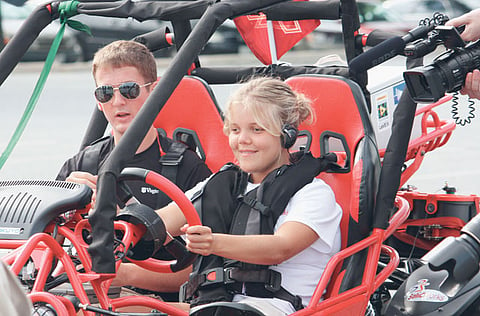Researchers to help blind drivers
'Non-visual interface' provides information

Washington: Could a blind person drive a car? Researchers are trying to make that far-flung notion a reality.
The National Federation of the Blind and Virginia Tech plan to demonstrate a prototype vehicle next year equipped with technology that helps a blind person drive a car independently.
The technology, called "non-visual interfaces," uses sensors to let a blind driver manoeuvre a car based on information transmitted to him about his surroundings: whether another car or object is nearby, in front of him or in a neighbouring lane.
Advocates for the blind consider it a "moon shot," a goal similar to President John F. Kennedy's pledge to land a man on the moon. For many blind people, driving a car long has been considered impossible. But researchers hope the project could revolutionise mobility and challenge long-held assumptions about limitations.
"We're exploring areas that have previously been regarded as unexplorable," said Dr. Marc Maurer, president of the National Federation of the Blind. "We're moving away from the theory that blindness ends the capacity of human beings to make contributions to society."
The Baltimore-based organisation was announcing its plans for the vehicle demonstration at a news conference Friday in Daytona Beach, Florida. Maurer first talked about building an automobile that the blind could drive about a decade ago when he launched the organisation's research institute.
The vehicle has its roots in Virginia Tech's 2007 entry into the DARPA Grand Challenge, a competition for driverless vehicles funded by the Defence Department's research arm.



